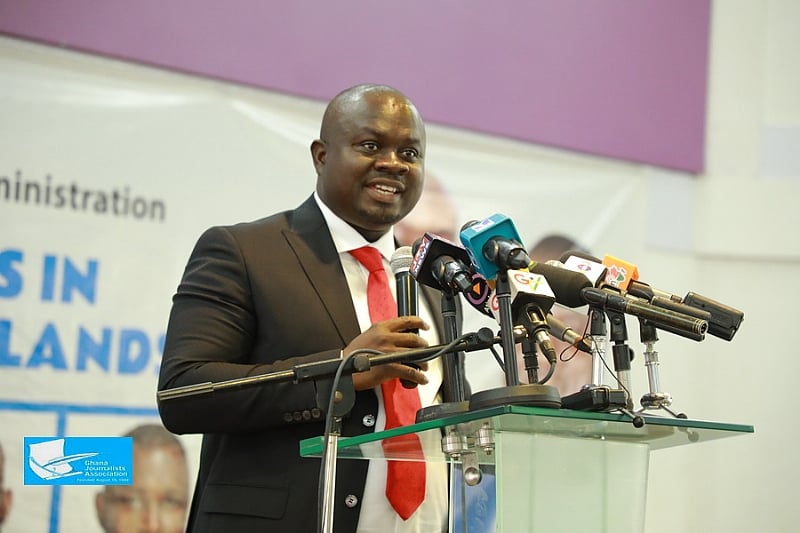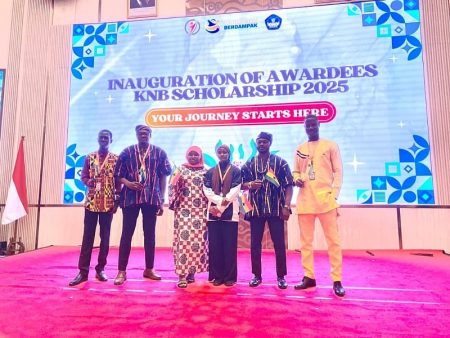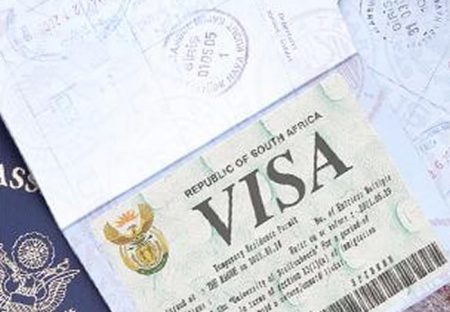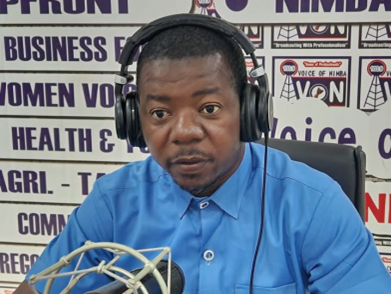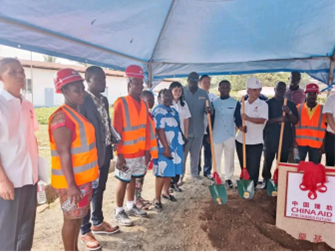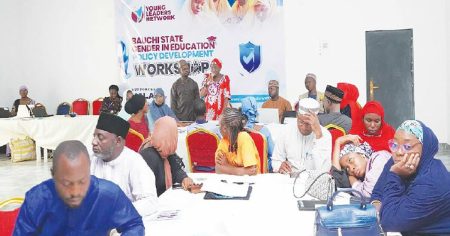The assault on journalist Kwabena Agyekum Banahene of EIB Network during the Ablekuma North Constituency parliamentary rerun election has ignited a firestorm of condemnation from the Ghana Journalists Association (GJA), raising serious concerns about press freedom and the safety of journalists in Ghana. The incident, involving a uniformed police officer slapping Mr. Banahene while he filmed electoral proceedings, has been decried as a blatant attack on the media’s constitutional right to operate without fear or intimidation. The GJA’s fervent demand for justice underscores the gravity of the situation, emphasizing the need for swift and decisive action to deter future assaults and safeguard the principles of democratic governance.
The GJA’s outrage stems not only from the physical assault itself but also from its stark contradiction with recent assurances of media safety given by high-ranking government officials. Just hours before the incident, Vice President Jane Naana Opoku-Agyemang and the Minister of State in charge of Government Communications, Hon. Felix Kwakye Ofosu, publicly pledged the government’s commitment to protecting journalists. The GJA argues that the dissonance between these assurances and the subsequent assault creates a crisis of confidence, undermining public trust in the government’s commitment to press freedom. This discrepancy, they argue, highlights the urgency of translating words into action and ensuring accountability for those who violate the rights of journalists.
While the police administration’s swift interdiction of the officer is a positive initial step, the GJA insists on a more comprehensive response. They are demanding a thorough and transparent investigation overseen by the Inspector General of Police, Dr. Christian Tetteh Yohonu, leading to the prosecution and appropriate sanctioning of the officer involved. This demand for accountability reflects the GJA’s determination to ensure that this incident is not treated lightly and that a clear message is sent that such behavior will not be tolerated within the police force. The GJA’s emphasis on prosecution signals a move beyond mere condemnation and towards a proactive pursuit of justice for the assaulted journalist.
The assault on Mr. Banahene is not an isolated incident. The GJA also highlighted the reported assault of JoyNews reporter Salomey Nartey at the same event, further underscoring the vulnerability of journalists in the field. The GJA emphasizes that these incidents represent a broader threat to the safety of all journalists in Ghana and their ability to perform their crucial role in a democratic society. By linking these individual cases to the larger issue of press freedom, the GJA is framing the discussion not just as a matter of individual justice but as a fundamental concern for the health of Ghana’s democracy.
The GJA’s response extends beyond demanding justice for the assaulted journalists. They are calling for systematic changes within security agencies to prevent future occurrences. This includes prioritizing training on the constitutional role of the media and fostering a culture of respect and cooperation between security personnel and journalists. By advocating for these broader reforms, the GJA aims to address the root causes of such incidents and create a safer environment for journalists to operate in. This proactive approach highlights the GJA’s commitment to not just reacting to incidents but also working towards preventing them.
The GJA’s strong stance emphasizes the vital role journalists play in upholding democratic values. They argue that journalists’ ability to operate freely and without fear is essential for transparency, accountability, and public access to information, particularly during critical periods like elections. Any attempt to intimidate or harm journalists, they assert, is a direct attack on these democratic principles. By framing the safety of journalists as integral to the functioning of democracy, the GJA elevates the issue beyond professional concerns and positions it as a matter of national importance. The GJA’s commitment to monitoring the situation, engaging with stakeholders, and ensuring justice is not just promised but delivered underscores their resolute stance in protecting press freedom and the safety of journalists in Ghana. Their unwavering pursuit of accountability in these cases serves as a powerful message: attacks on journalists are attacks on democracy itself.





